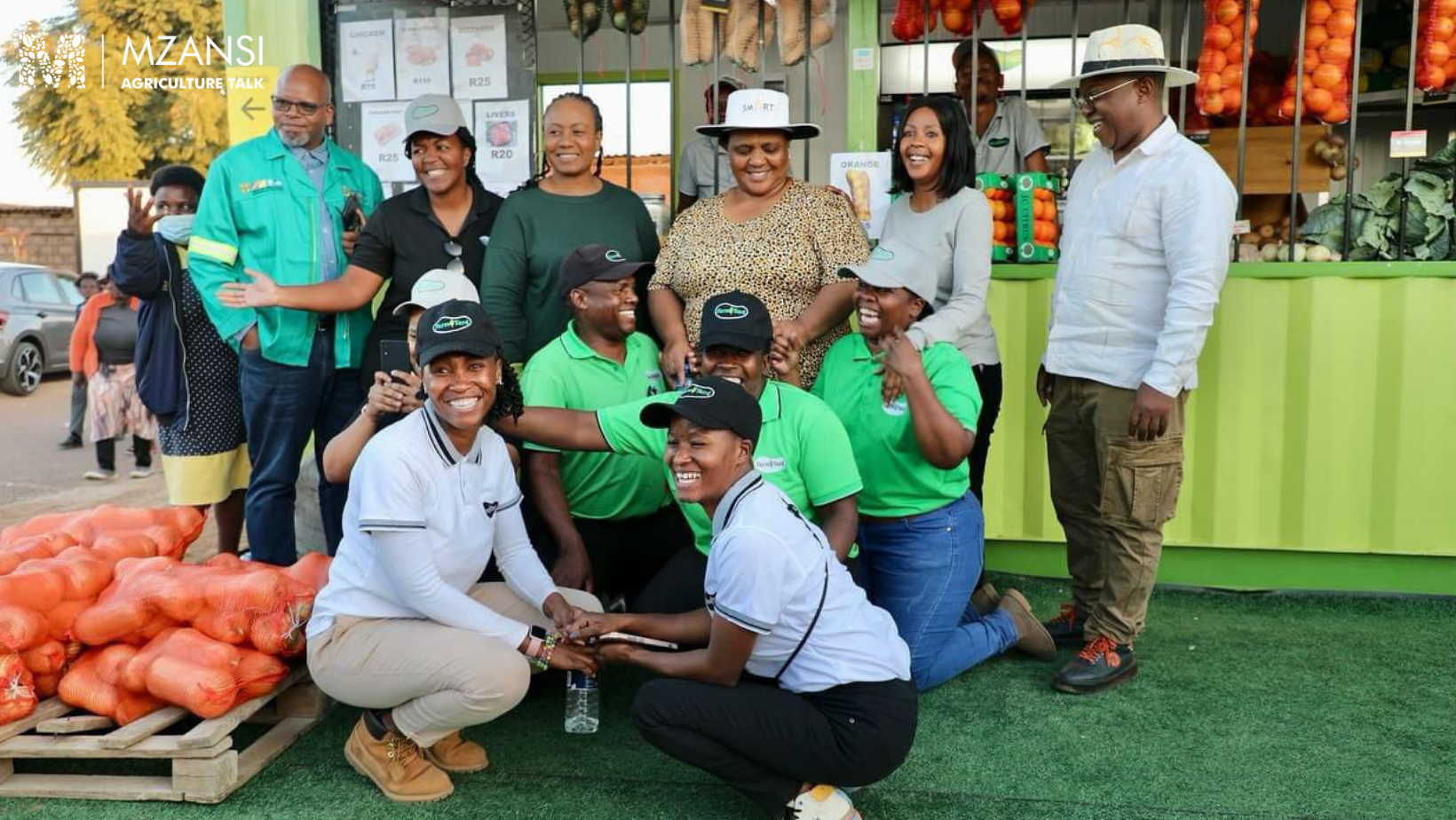Gauteng Social Development, Agriculture, Rural Development and Environment MEC Mbali Hlophe says the roll out of farmyards will restore the lost nutritional value in townships, hostels and informal settlements.
The farmyard is an innovative concept largely targeted at youth and women, who are given repurposed containers converted into shops to sell their produce from.
This, said Hlophe, is done in an effort to bring to sharp focus the healthy diet.
The MEC says there’s about four farmyards in Gauteng’s townships, equipped with the necessary equipment and infrastructure as part government’s project to revitalise township economy in order to migrate Gauteng citizens from dependency on the State to self-reliance.
“This is about bringing back good health and nutrition to our townships. When you look at the stats in our disposal, they show that many people, especially children, are not eating nutritious meals required for their growth on a daily basis. So by bringing farmyard closer to our people, we are making sure that they start paying attention to their health. We encourage beneficiaries of farmyards to ensure that they sell the kind of food that is required in a home meal, to provide nutrient rich crops like spinach, moringa, and additionally, provide proteins through the live or frozen chickens they sell,” she said.
This initiative, the MEC indicated, is also a direct response to the province’s relentless fight to ensure the province is food secure.
“Food Security is one of our elevated priorities and boasts a basket of services available to ensure the province is food secure, and with regards to farmyards, we have identified subsistence farmers as enablers to help the province become food secure in a sustainable manner,” Hlophe explained.
The food security baskets include a variety of programmes such as food distribution through the food banks, food parcels, Community Nutrition and Development Centres ( CNDCs), and NPOs as vehicles to ensure that the poor and vulnerable access sustainable, nutritious and safe food in a sustainable manner and in line with policy guidelines enshrined in the National Policy on Food Nutrition Security together with Household Food and Nutrition Security Strategy approved by the Cabinet in 2013.
“Most importantly, while the initiative secures self-reliance and sustainable food security, it also responds to the joblessness challenge especially for the youth in the province,” said the MEC.
One of the youth that benefitted from the farmyard is 32-year-old Simangele Sibande.
She says the farmyard enabled her to realise her entrepreneurial ambitions.
“The farmyard program provided me with a wonderful opportunity to create my own business, to provide for my family and also show other young people that there are opportunities in agriculture. What is even more fulfilling is that I was able to employ two other young people to assist me in selling produce from local farmers in Zithobeni,” she said.
MEC Hlophe notes that the project is gradually shifting the prevailing perceptions in the townships that agriculture is something unattractive and associated with filth and frowned upon.
“A lot of people when they think agriculture, they think something far. But through the project, we have been able to show that agriculture is economically viable, and that as a department, we remain committed to continue to facilitate access to markets,” MEC said.




















